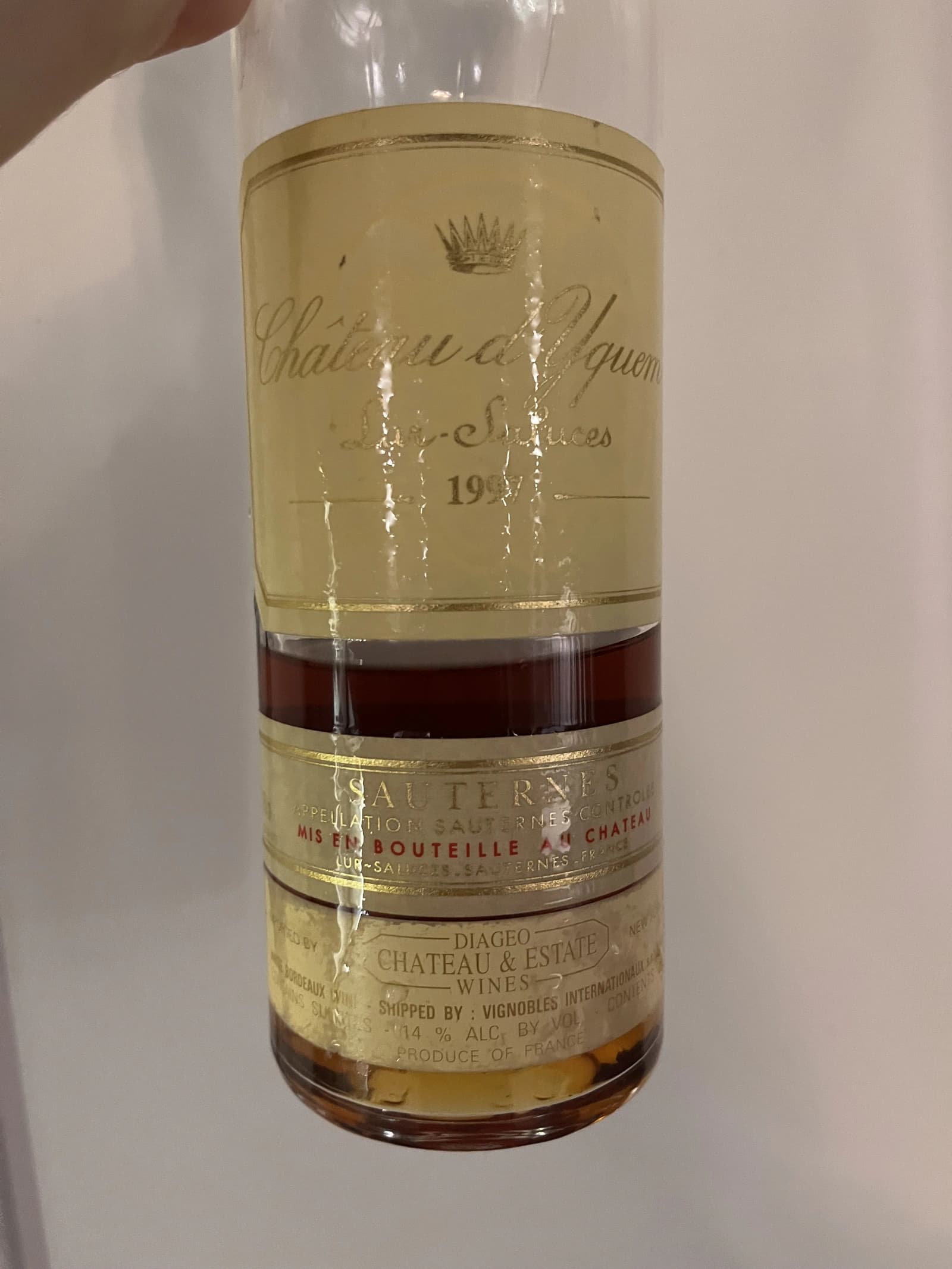Château d'Yquem Sauternes 1997
- Region
- France » Bordeaux » Sauternes AOC
- Type
- white still, sweet
- Producer
- Vintage
- 1997
- Grapes
- Sémillon, Sauvignon Blanc
- Alcohol
- 14
- Volume
- 750 mL
- Cellar
- not available

Ratings
The wine features an intriguing blend of rose-flavoured Turkish delight, camphor, caramel, apricot jam, dried herbs, pine nuts, and coffee. This array of aromas creates a captivating bouquet, which is mirrored perfectly on the palate, resulting in a rich, complex, and persistent taste experience. While the acidity may be somewhat lacking, especially when compared to other bottles by Yquem, this does not significantly detract from its overall appeal. The wine remains a delicious and fitting conclusion to a great evening, offering a memorable and enjoyable finish.
About Producer
Château d'Yquem, dating back to the 16th century, is the most renowned sweet wine producer in the world, located in the Sauternes region of Bordeaux. The estate is currently owned by LVMH, acquired in 1999. Château d'Yquem is uniquely positioned in the appellation of Sauternes, celebrated for its exceptional microclimate conducive to the development of Botrytis cinerea, essential for the production of its distinguished sweet wines.
D'Yquem was granted a superior Premier Cru Supérieur status in the 1855 Bordeaux Wine Official Classification, the only Sauternes property to receive this exclusive ranking. The estate's wines are known for their remarkable complexity, longevity, and balance between sweetness and acidity. Regarding the Lur-Saluces name (which is printed on some labels), it refers to the family that owned Château d'Yquem for nearly 300 years until 1999. The family's stewardship, particularly under Marquis Bertrand de Lur-Saluces in the late 19th and early 20th centuries, was instrumental in establishing d'Yquem's reputation. As a homage to this legacy, bottles produced during and shortly after the Lur-Saluces tenure often bear the family name, signifying a historical era for the estate.